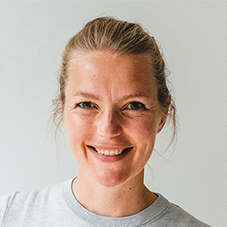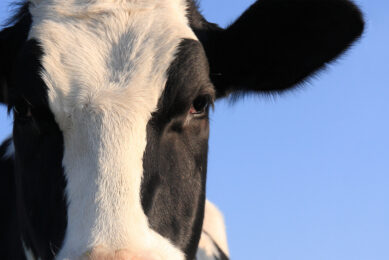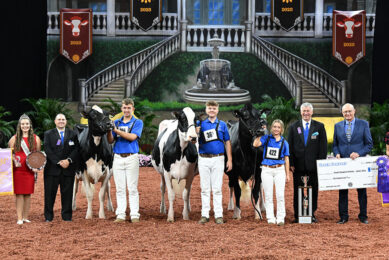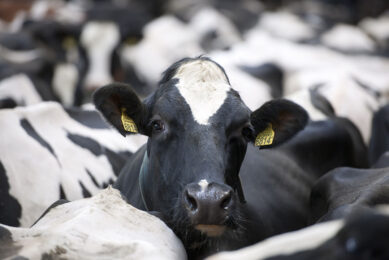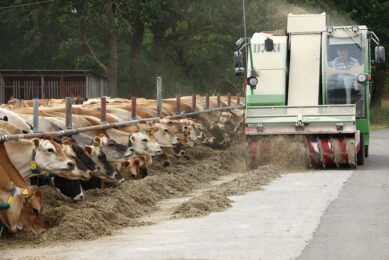De-Su: Top producer of top end bulls
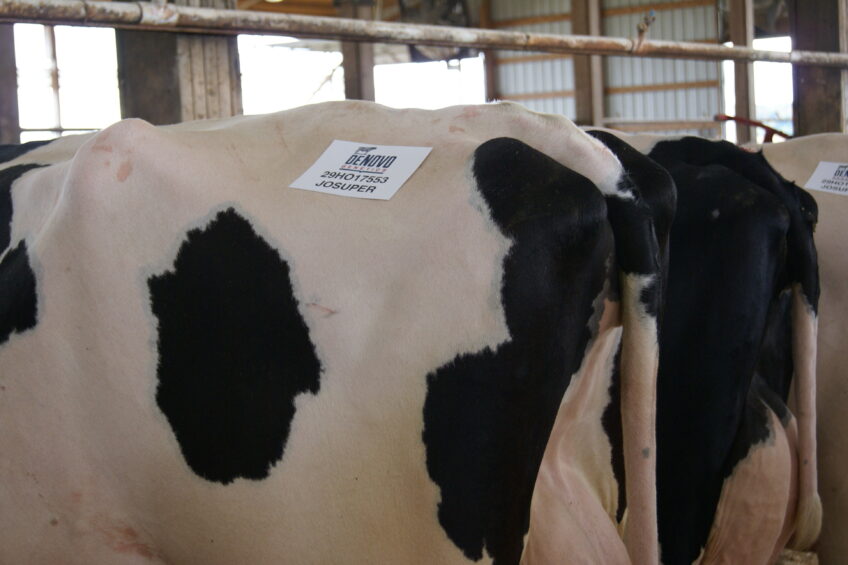
De-Su Holsteins, LLC is a family operated dairy farm based in New Albin, Iowa. But this is not a normal farm. Top-notch Holstein cows are being bred here, boosted by the joint venture with genetics company ABS Global Inc.
De-Su Holsteins is a large commercial dairy farm and breeding company in New Albin, Iowa, USA with 1,900 milking cows and 2,250 heifers. The animals are housed on sand bedding and the lactating herd produces 28,763lbs milk (13,047kg) annually per cow. The animals are milked in a parallel 18 milking parlour and are fed a diet based on corn silage, hay and cotton seed. The farm, owned by Darin Meyer and his parents Dean and Sue, has 4,200 acres of land (both owned and rented) and employs 36 full-time employees and 4-5 part-time employees. Meyer has been passionate about dairy cow genetics for many years and has had numerous bulls on the list of the best, such as De-Su Balisto and De-Su Topsy.
Joint venture with ABS Global
De-Su Holsteins is North America’s leading independent breeder of high NM$ (net merit dollars) and TPI® (total performance index) Holstein bulls and formed a joint venture in 2016 with one of the world biggest genetics companies; ABS Global Inc. (hereafter called ‘ABS’). ABS is a division of Genus plc (based in the UK) and provides bovine genetics, reproduction services, artificial insemination technologies, and udder care products. The official joint venture, named ‘De Novo Genetics,’ combines the best genetics from both De-Su and ABS, focusing on the creation of elite and differentiated Holstein genetics for clients around the world.

This joint venture is the result of many years of working together in a successful way. Darin Meyer, president De-Su Holsteins manages De Novo Genetics and has long championed breeding, based around traits of commercial importance to dairy farmers. The joint venture entails that De-Su farm supplies young bulls to ABS, who then further grows them to adult bulls for semen collection on one of the ABS stud farms. As a partner, ABS also jointly owns the females with De-Su. In total, ABS has 4 production studs, selling over 17.7 million units of semen and embryos per year to over 70 different countries. The production studs are located in the US, India, Brazil and the UK. Offspring from the joint venture began arriving to ABS facilities in mid-2017.
Synchronise and optimise
This well run dairy is at the forefront of supplying superior genes through the males they produce. Darin Meyer’s aim is to get as many offspring from the cows with high genomic values. This means that every month around 200 embryos are being recovered and placed in donor heifers through in vitro fertilisation (IVF) and embryo transfer (ET). The use of embryos offers the best method of producing multiple offspring from superior female cattle. Meyer also implements artificial insemination (AI). For AI, De-Su farm uses both conventional and sexed semen. Heifers are flushed to collect the embryos at 9 to 10 months of age. Meyer tries to have them calve by 26 months.

All-in-all, the farm has to deal with around 250 pregnancies per month. Katie Olson, Global Director, Dairy Product Development, ABS Global explains: “The joint venture between ABS and De-Su is unique and the advantage is that De-Su is a commercial dairy and we can see how the genetics work in a commercial large scale operation and validate that the genetics work. We actually get a sneak preview before the genetics are sold to our client base. We have large flexibility within our De Novo programme, so we can create different genetics for different markets. At this farm, we do a great job in producing a lot of calves and top end females to use for embryo production again.” The whopping number of calves and hence young bulls coming from De-Su clarifies that this farm supplies a significant proportion of ABS genetics. And this will only become more in the coming years, Ms Olson says.
Testing for genomic merit
Producing top genetics is key for De Novo Genetics and the results speak for themselves. In 2017, ABS had an impressive 34% in the top NM$ , with a high portion coming from the genetics at De Novo (14%). Ms Olson explains that ABS strives to make top quality genetics that can be used globally, “In Holstein genetics, top end bulls can define the entire population and we have some great new bulls in the pipeline (Table 1), that will start to produce offspring in the coming year(s). We are very excited about that.”
ABS is typically selling semen from the top sires when the animals are 12 months of age. This is a considerable improvement from the past, where it could take up to 5 years. This is because the sires would need to be proven with the data from their daughters first. Now it can be done much quicker because of genomic testing; each De Novo calf is tested for its genomic merit. It can mean that 1500 pound milk production difference may be seen in the offspring of the best performing bulls to the least performance bulls. This is important to predict by genetic testing. Another important trait is how fast the cow can get pregnant, also named the Daughter Pregnancy Rate (DPR). The DPR is defined as the percentage of cows eligible to become pregnant in a 21-day period that actually become pregnant. The higher the days open (calving-to-conception interval), the longer it takes to get the cow pregnant. So to improve the fertility of the dairy cow herd, it is important to incorporate predicted transmitting abilities for DPR into sire selection decisions. Ms Olson addresses: “Genetics are permanent and farmers want to make the right decision on this. 29HO17553 Uecker SuperSire Josuper-ET, for example, shows high milk production in his offspring, but also scores very high in daughter fertility. The daughter lines definitely stand out from the rest and seem to be the hardest working cattle in the barn.”

India potential and gene editing
In 1968, ABS introduced the ABS Genetic Management System (GMS), a comprehensive system that optimises genetic progress and simplifies the breeding process. It was quite game-changing some decades ago and since then the most widely utilised mating programme in the world. The latest version (GMS 2.0), launched in 2016, is a completely new, redesigned mating programme offering sound, unbiased mating selections based on economically important production, health, and type traits for longer-lasting, more profitable cows. ABS also recently added a heifer optimisation tool to GMS and explores the use of next generation technologies, such as genetic blueprinting. It shows that ABS wants to become even better and to serve different clients around the world even better.

Nate Zwald, Chief Operating Officer Dairy at ABS explains: “It is not our main goal to be the biggest breeding company, but we want to be the most substantial one and the best partner for our customers. Around the world, dairy farms are different (size, genetic focus etc.). We want to make each farm as profitable as possible. Currently, we have 40,000 customers worldwide. We probably won’t grow much bigger in customer base, as dairy farms consolidate.” Mr Zwald sees great potential for a country like India to market sexed semen. “In India, cows are sacred, so the bull calves cannot be sold and slaughtered for meat. If we can bring the technology of sexed genetics to a place like India, the dairy sector in this country can be really boosted and become much more efficient.” The sexed semen, marketed as Sexcel™ Sexed Genetics, was launched in September 2017 and has been rolled out in different regions around the world. Another exciting topic that Mr Zwald mentions is the potentials of gene editing. “Already, gene edited elite pigs are born today. By using novel gene editing techniques, we can make sure that pigs have PRRS resistance for example. This can have a huge impact in China for example, where diseases like PRRS wipe out complete herds every year. But of course we have to make sure that this is safe and accepted by the public. We use different clinical trials to validate this. In cattle, the implications could be to breed cows to become resistant to bovine respiratory disease for example. So I am excited to see what 2018 and beyond will bring us in cattle genetics. The joint venture with De-Su will continue and will help us to test and validate new breeding tools in practice and to keep on producing top notch bulls and dairy cows,” concludes Mr Zwald.


